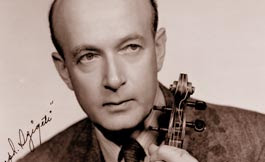An article, "Who killed John Keats?" in the Times Literary Supplement reads "A letter by Keats's old friend makes clear how much 'sensative-bitterness' the poet felt after attacks on him by critics."
And now the letter, published Friday July 27, 1821, five months after Keats’s death, in the Morning Chronicle:
JOHN KEATS, THE POET.
To the EDITOR of the MORNING CHRONICLE.
Sir, I find by the Daily Papers, that the young Poet, John Keats, is dead. I shall feel gratified if you will allow a few remarks from his School-fellow and Friend, a place in your Paper.
It appears that Mr. Keats died of decline at Rome, whither he had retired to repair the inroads which the rupturing of a blood vessel had made upon his constitution.
It is not impossible that his premature death may have been brought on by his performing the office of nurse to a younger brother, who also died of decline; for his attention to the invalid was so anxious and unwearied, that his friends could see distinctly that his own health had suffered in the exertion. This may have been one cause, but I do not believe it was the sole cause. It will be remembered that Keats received some rough and brutal usage from the Reviews about two years since; particularly from the Quarterly, and from a Northern one; which, in the opinion of every gentlemanly and feeling mind, has rendered itself infamous from its coarse pandarism to the depraved appetites of gossips and scandal-mongers. To what extent the treatment he received from those writers operated upon his mind I cannot say; for Keats had a noble – a proud – and an undaunted heart; but he was very young, only one and twenty. He had all the enthusiasm of the youthful poet burning in him – he thought to take the great world by the hand, and hold its attention while he unburthened the overflowings of an aspiring and ardent imagination; and his beautiful recasting of “The Pot of Basil” proves that he would have done so had he lived. But his ardour was met by the torpedo touch of one whose “Blood is very snow-broth;” and the exuberant fancies of a young and almost ungovernable fancy were dragged forward by another, and exhibited in gross and wanton caricature. It is truly painful to see the yearnings of an eager and trusting mind thus held up to the fiend-like laugh of a brutal mob, upon the pikes and bayonets of literary mercenaries. If it will be any gratification to Mr. Gifford to know how much he contributed to the discomfort of a generous mind, I can so far satisfy it by informing him, that Keats has lain awake through the whole night talking with sensative-bitterness of the unfair treatment he had experienced; and with becoming scorn of the information which was afterwards suggested to him; “That as it was considered he had been rather roughly handled, his future productions should be reviewed with less harshness.” So much for the integrity and impartiality of criticism! This charge would no doubt be denied with high and flouncing indignation; but he told me he had been given to understand as much, and I believe him. If the object of this hint was to induce the young Poet to quit the society of those whom he had chosen for his friends, and who had helped him in pushing off his boat from shore, it shows how little his character was known to his assailants. He had a “little body,” but he too had a “mighty heart,” as any one of them would have discovered, had the same impertinences been offered to him personally which were put forth in their anonymous scandal-rolls. Keats’s great crime was his having dedicated his first production to Mr. Leigh Hunt. He should have cowered under the wings of Mr. Croker, and he would have been fostered into “a pretty chicken.”
I remember his first introduction to Mr. Hunt, and the pleasure each seemed to derive from the interview. I remember with admiration, all that Gentleman’s friendship and disinterestedness towards him – disinterestedness, which would surprise those only who do not know him. I remember too, his first introduction to Mr. Haydon; and when in the course of conversation that great artist asked him, “if he did not love his country,” how the blood rushed to his cheeks and the tears to his eyes, at his energetic reply. His love of freedom was ardent and grand. He once said, that if he should live a few years, he would go over to South America, and write a Poem on Liberty, and now he lies in a land where liberty once flourished, and where it is regenerating.
I hope his friends and admirers (for he had both, and warm ones) will raise a monument to his memory on the classical spot where he died; and that Canova, the Roman, will contribute that respect, so amply in his power, to the memory of the young Englishman, who possessed a kindred mind with, and who restamped the loveliest of all the stories of his great countryman, – Boccaccio.
And now farewel, noble spirit! You have forsaken us, and taken the long and dark journey towards “that bourne from whence no traveller returns;” but you have left a memorial of your genius which “posterity will not willingly let die.” You have plunged into the gulf, but your golden sandals remain. The storm of life has overblown, and, “the rest is silence.”
“Fear no more the heat of the sun,
Nor the furious winter’s rages;
Thou thy worldly task hast done,
Home art gone, and ta’en thy wages.
* * * * * *
Quiet consummation have,
And renowned be thy Grave.”
Y.
























